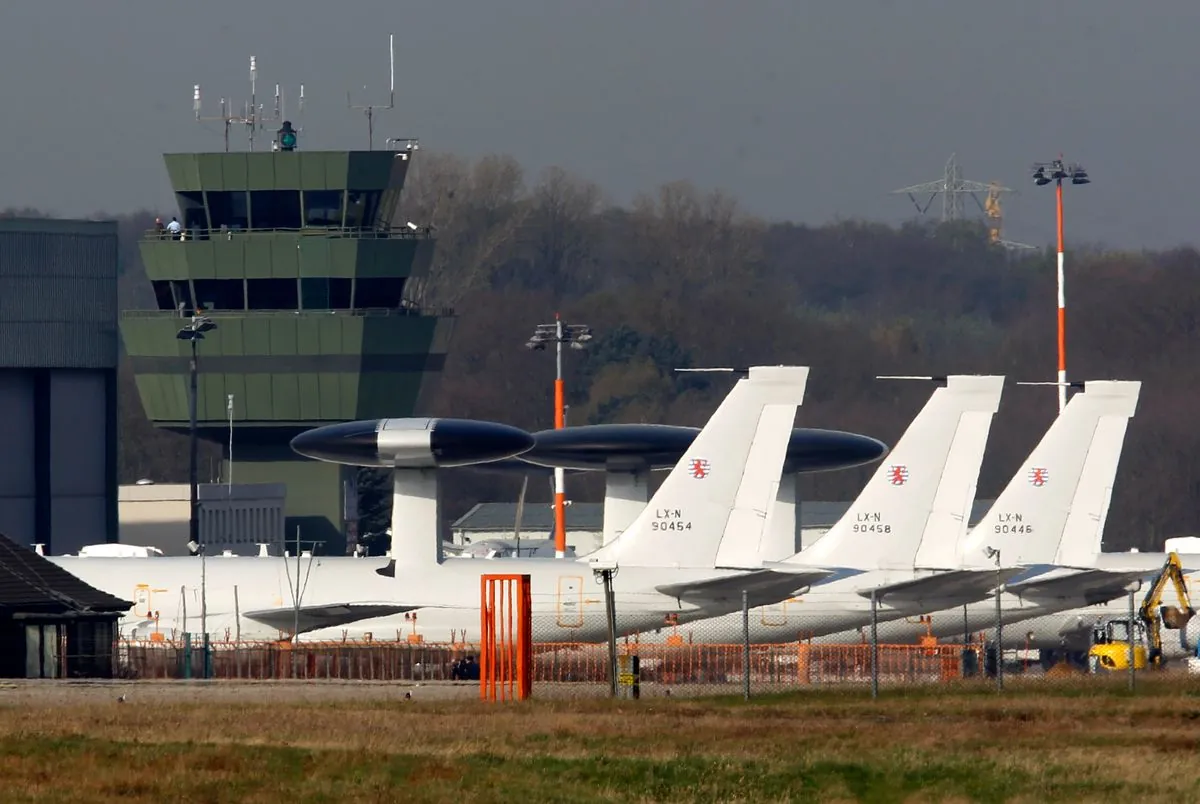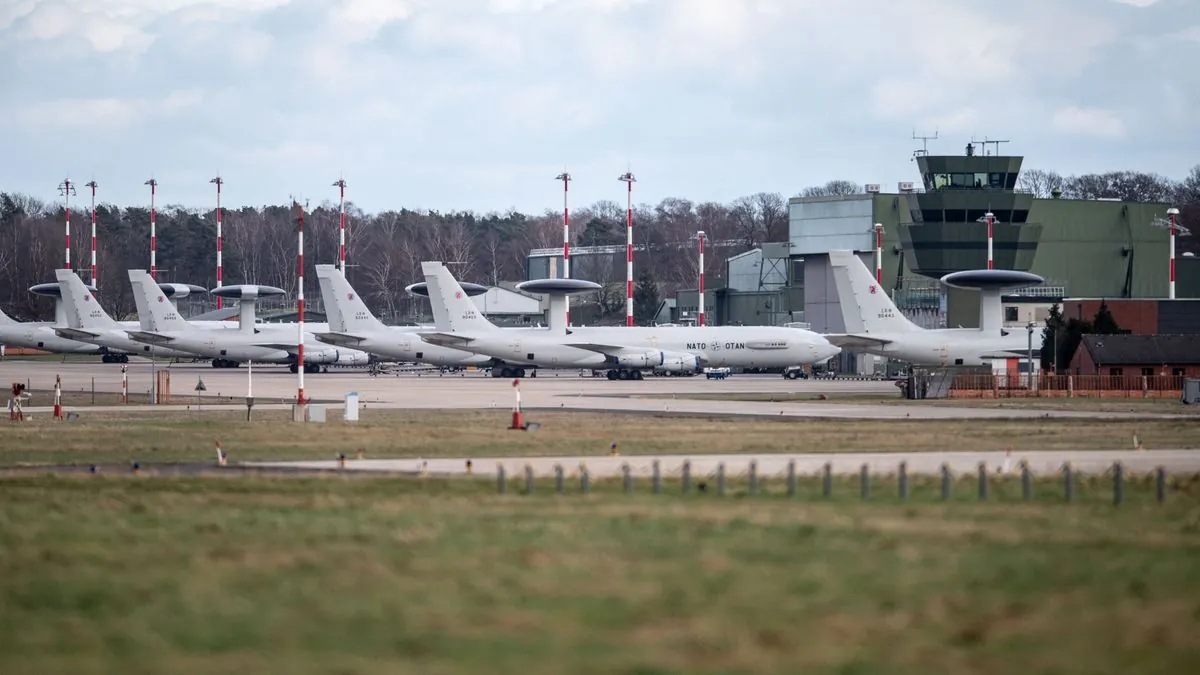NATO Base in Germany Heightens Security Amid Potential Threat
NATO's Geilenkirchen air base in Germany has elevated its security level due to a potential threat. Non-essential staff have been sent home as operations continue under heightened vigilance.

In a recent development, NATO has increased security measures at its Geilenkirchen air base in western Germany. The decision comes in response to intelligence indicating a potential threat to the facility, which serves as the home base for the alliance's Airborne Warning and Control System (AWACS) aircraft.
The NATO AWACS fleet, consisting of 14 E-3A aircraft, plays a crucial role in the alliance's aerial surveillance capabilities. These sophisticated planes can detect aircraft at distances exceeding 400 km and maintain flight operations for approximately 8 hours without refueling.
As a precautionary measure, non-essential personnel have been instructed to leave the premises. However, the base continues to operate as planned, maintaining its vital functions. The nature of the potential threat remains undisclosed, highlighting the sensitive nature of the situation.
Local law enforcement has been observed on the grounds of the air base, although details regarding their deployment have not been made public. This incident occurs against a backdrop of heightened concerns about the vulnerability of critical infrastructure to potential sabotage attempts.

The Geilenkirchen incident follows a recent security scare at a major German Air Force base near Cologne, Germany's fourth-largest city. Last week, the facility experienced a lockdown due to fears of water supply tampering. Although subsequent investigations found no evidence of sabotage, the event has contributed to an atmosphere of increased vigilance.
In northern Germany, prosecutors in Flensburg, a city near the Danish border, have initiated an investigation into suspected espionage activities potentially aimed at sabotage. Concurrently, reports of drone sightings over a chemical park in Brunsbuettel, situated at the mouth of the Elbe River on the North Sea coast, have further intensified security concerns.
These events underscore the complex security landscape faced by NATO and its member states. As the alliance approaches its 75th anniversary since its establishment in 1949, it continues to adapt to evolving threats in an increasingly unpredictable geopolitical environment.
Germany, a NATO member since 1955, plays a significant role in the alliance's operations. The country's strategic location, bordering nine other nations including the Netherlands along a 577 km frontier, enhances its importance in NATO's defense architecture.
As investigations continue and security measures remain heightened, the situation at Geilenkirchen serves as a reminder of the ongoing challenges faced by military and civilian authorities in safeguarding critical infrastructure and maintaining operational readiness.


































